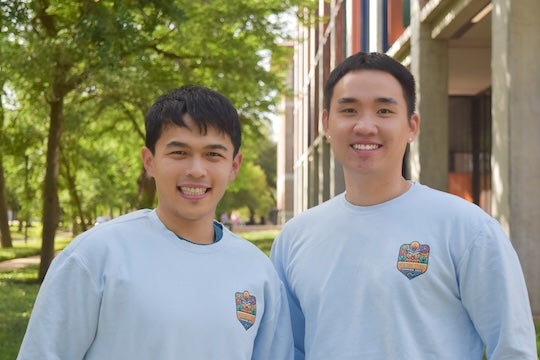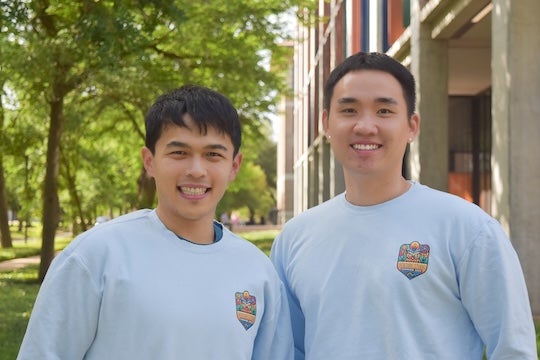The Liu Idea Lab for Innovation and Entrepreneurship (Lilie) at Rice University is proud to announce that HEXAspec, a cutting-edge spinout from the lab of professor Jun Lou, has been awarded a $500,000 National Science Foundation Partnership for Innovation grant. The funding will support HEXAspec’s work to enhance the future of computing by substantially improving the thermal conductivity of chips.
“With the huge scale of investment in new computing infrastructure, the problem of managing the heat produced by these GPUs and semiconductors has grown exponentially. We’re excited to use this award to further our material to meet the needs of existing and emerging industry partners and unlock a new era of computing,” HEXAspec co-founder Tianshu Zhai said.

HEXAspec’s breakthrough hBN technology enables GPUs to run cooler, cool faster and use less water and electricity, unlocking the potential for the next generation of computing and artificial intelligence (AI). With the demand for increasingly powerful GPUs and data centers, HEXAspec’s innovative thermal solutions address critical challenges in energy efficiency and performance for emerging technologies such as AI and machine learning, which require rapid and reliable computing systems.
The grant recognizes HEXAspec’s tremendous promise to transform the high-performance computing landscape and impact the sustainability of AI-driven industries. Zhai and fellow co-founder Chen-Yang Lin — both participants in the Rice Innovation Fellows program — have demonstrated remarkable entrepreneurial prowess. They recently won the 2024 Napier Rice Launch Challenge as well as the 2025 TEX-E Competition at CERAWeek before being selected for Rice’s summer startup accelerator, the Lilie Summer Venture Studio, this year.
“HEXAspec’s success is a testament to the power of academic innovation at Rice and the entrepreneurial spirit fostered here at the Liu Idea Lab,” said Kyle Judah, executive director of Lilie. “The grant from the NSF is a game-changer, accelerating the path to market for this transformative technology.”
The Rice Innovation Fellows program, which is designed to help doctoral and postdoctoral students commercialize their research, played an instrumental role in supporting HEXAspec’s growth. Through mentorship, resources and access to key industry networks, the fellows program empowered Zhai and Lin to bring their technology to fruition and navigate the path toward successful commercialization.
For more information about HEXAspec, visit www.hexaspec.com.

